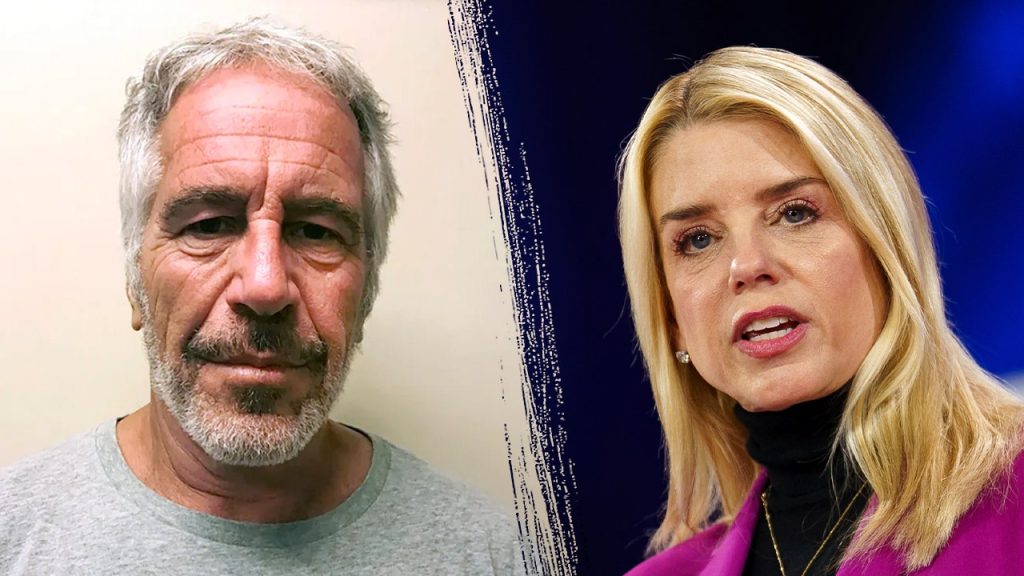In a significant development regarding the investigation into the activities of the late Jeffrey Epstein, U.S. Attorney General Pam Bondi announced the acquisition of a substantial volume of files from the Federal Bureau of Investigation (FBI). This follows a previous release of documents, which was met with considerable disappointment as it largely failed to provide the expected details, including a potential “client list.” Bondi revealed that the documents, characterized as a “truckload of evidence,” will undergo careful scrutiny to ensure the protection of Epstein’s victims, all while questioning previous administrations for their handling, or lack thereof, of this critical information.
| Article Subheadings |
|---|
| 1) Attorney General Announces New Evidence Collection |
| 2) Implications of the Document Release |
| 3) Criticism Following Initial Document Release |
| 4) Next Steps in Epstein Investigation |
| 5) Public Reaction and Transparency Issues |
Attorney General Announces New Evidence Collection
U.S. Attorney General Pam Bondi confirmed that the Department of Justice (DOJ) has received a considerable amount of new files related to Jeffrey Epstein from the FBI. During an appearance on a news program, Bondi detailed how these documents were delivered following her ultimatum to the FBI for a complete disclosure by 8 a.m. on Friday. The specific details regarding the location of the documents, reportedly stored in the Southern District of New York, were disclosed to her by a source familiar with the case. This immediate action underscores a renewed commitment by this administration to scrutiny and transparency concerning Epstein’s complex network.
Implications of the Document Release
The newly acquired documents are described by Bondi as a “truckload of evidence,” with officials emphasizing the importance of a thorough examination. It raises questions about the previous management of these files and indicates potential oversight or negligence in how the evidence was handled. Bondi emphasized the need for a comprehensive report from the FBI detailing why these documents were withheld for an extended period, indicating a vigorous approach as the DOJ begins to delve into the contents. The documents, comprising thousands of pages, are anticipated to shed more light on Epstein’s operations and possibly reveal connections to other individuals involved in illicit activities.
Criticism Following Initial Document Release
The rollout of previously released documents related to Epstein faced immediate backlash from various political figures and critics who expressed disappointment. Notably, Representative Anna Paulina Luna from Florida decried the content of those files, stating that the documents resembled more of a “phonebook” than a substantial report as many had hoped. This feeling of disappointment was echoed across social media platforms, where expectations for detailed revelations about Epstein’s alleged network of accomplices and clients were set high but ultimately fell flat.
Next Steps in Epstein Investigation
With the DOJ now in possession of these new files, attention shifts toward the investigative processes that will unfold. Bondi mentioned that the department intends to review the documents rigorously but also cautiously, prioritizing the protection of Epstein’s victims. Reports indicate that the FBI has been directed to prepare a detailed account of the withheld documents and the reasons behind the period of inaction. This proactive approach suggests an ongoing commitment from the DOJ to uncover the full extent of Epstein’s operations and the individuals associated with him.
Public Reaction and Transparency Issues
The public’s reaction to both the previous and recently acquired documents has been one of frustration and a call for greater transparency. Bondi accused the previous administration of deliberately “sitting” on pertinent documentation, suggesting a lack of political will to address the issues surrounding Epstein’s case. This has brought attention to broader implications regarding accountability and transparency within government agencies handling sensitive investigations. Many citizens and advocacy groups are now calling for clarity on what information will ultimately be made available and how the DOJ plans to ensure that the legacy of Epstein’s activities is thoroughly examined.
| No. | Key Points |
|---|---|
| 1 | Attorney General Pam Bondi confirmed a significant new delivery of documents related to Jeffrey Epstein from the FBI. |
| 2 | The documents are expected to contain a wealth of evidence that could shed light on Epstein’s past activities. |
| 3 | Initial document releases were criticized as unsatisfactory, lacking significant new information about Epstein’s alleged clients. |
| 4 | The DOJ aims to ensure that the rights and identities of Epstein’s victims are protected during the review process. |
| 5 | Calls for increased transparency regarding government handling of Epstein-related documentation are growing among the public and lawmakers. |
Summary
The recent announcement by Attorney General Pam Bondi regarding new files acquired from the FBI marks a crucial step forward in the ongoing investigation into Jeffrey Epstein’s criminal activities. With the promise of a thorough review, the DOJ aims to enhance transparency and accountability, particularly regarding previous lapses in documentation handling. As the investigation unfolds, the focus will remain on ensuring justice for the victims while addressing significant public interest in the case.
Frequently Asked Questions
Question: What new evidence has been uncovered in the Epstein investigation?
U.S. Attorney General Pam Bondi announced that the DOJ has received thousands of new documents from the FBI, which are expected to be critical in revealing more about Epstein’s networks.
Question: Why was there criticism regarding the initial document release?
Critics, including lawmakers like Rep. Anna Paulina Luna, expressed disappointment as the initial documents were perceived as lacking substantive content, mainly being seen as Epstein’s contact list rather than revealing new insights.
Question: What steps is the DOJ taking following the acquisition of new files?
The DOJ plans to review the newly received documents thoroughly and cautiously, with a focus on protecting the identities and rights of Epstein’s victims while preparing a detailed report on the circumstances surrounding the previous withholding of these documents.


